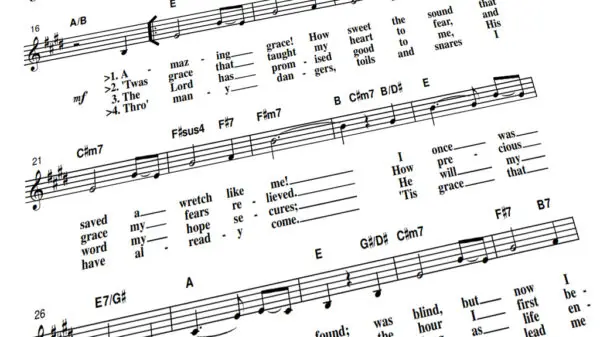Many times, decline in churches can definitely be attributed to a poorly done worship service. The reality is that these worship services could be done very well, but often the worship service is a poor one because the worship pastor is not given the tools they need to succeed. Too many churches would rather have congregational preferences take these tools away or limit them. This often leads to a “by-committee” design of a worship service.
At the end of the day, God has called a person to run a worship service. That person trains tirelessly, reads about worship, studies worship, and puts a vast amount of time into planning. That person needs to be able to lead, and being at a worship service that is planned by an untrained committee is a bit like watching me try to use chopsticks (messy, awkward, and likely to end with food on my clothes).
So what tools does a church need to give a worship pastor need to succeed? I’d also like to note, while I’m on the subject, that I am absolutely thrilled to be a part of a church that stocks my toolbelt. In fact, they stock it well enough that sometimes I feel like I can’t possibly use all the tools at my disposal. I love churches that set their people up for success!
Dynamite
Most churches have some giant boulders in the worship service. By “giant boulder” I mean something that the power-people in the congregation feel is essential to the service and must never be changed, moved, or removed. There are plenty of things that absolutely need to be in a worship service, theologically speaking. However, there are things that churches have turned into boulders that have no business being in the way of the tracks. Those dreaded “stand-and-greet” times. Unchangeable offering times. Boulders.
When the railroad companies ran into boulders, they didn’t plan around them. That wasn’t efficient and lacked common sense. Instead, they used the tool that every worship pastor needs to carry…dynamite. They got that boulder out of the way so the train could get through. Obviously, the Holy Spirit can get through to people even with that boulder in the way. However, that is absolutely no excuse for poor worship service planning and a refusal to adapt to cultural changes. Give your worship pastor some dynamite and let them get rid of some boulders!
A steering wheel
A worship pastor should be, in flight terms, the pilot, the air traffic controller, and whoever sits at the airline and plans all the flights. One large problem is that most churches demote the worship pastor to simply flying the plane. A much bigger problem is that at some churches, even that role is taken away. “OK, you get up on stage, lead 4 songs, then get down immediately!” That dog just won’t hunt.
I remember being at a church one time where a pastor would get on stage and literally stand about 6 inches behind the worship pastor’s right shoulder when he sensed that they were about a minute from the music being over. First, incredibly awkward. Second, what if they needed to add a song? An extra bridge? Small musical tag? That awkwardness of someone being all up in your business just gets worse…and worse…and more distracting. The worship pastor needs to be able to change the direction of the service, extend the musical portion, or even cut songs. Churches have to be able to accept that they may not always know exactly how the service is going to go and let the person the God has called to fly the plane do their job. Give them that steering wheel and let them go!
A blank canvas
A worship pastor has got to have a blank canvas. Yes, I have served in churches where basically, I am handed a worship service with blanks on the page and I’m just supposed to fill in song titles. Seriously though, I’ve even walked into services where someone has taken it upon themselves to change even those (and didn’t even let me know they changed them). That’s not the job of the worship pastor, and it’s detrimental to the service. Worship pastors must be able to paint on a blank canvas. Many times, the worship services will look similar to each other. People do need a little consistency. However, even if the services look similar, there are often creative elements, behind-the-scenes adjustments, and small changes that often go unnoticed but can drastically change the tone of a worship service. Give your worship pastor the blank canvas and see what they can paint!
A helmet
I absolutely cannot overstate this one. Worship pastors need your protection. Complaints and conflict come from every angle. It’s easy to let people get to you and get inside your head. Protect your worship pastor from this. I’ve seen many worship pastors come under fire, including myself. It gets rough out there.
I remember once I saw a worship pastor under a heavy amount of fire in a public meeting. It went on for a short time, and then the lead pastor absolutely dropped the hammer. He, in no uncertain terms, explained that this was not how Christians behaved and that was not how they were going to treat people. That’s what we need. We need more people (not just staff) to stand up and protect their leadership. We’re going to make decisions you don’t like. The bottom line? The worship service isn’t about you. It’s about bringing glory to God as a body. So stop being part of the problem and start being part of the solution. Stop bringing complaints and start bringing support. Give your worship pastor a helmet so they are well-protected.
A different mealtime
Sunday morning is not my time to be fed spiritually. It’s not my time to recharge. I hope that our worship pastors are mature enough to feed themselves spiritually, but it’s also great to have some time for them to just be with other believers. Churches have got to offer something outside of Sunday morning for people involved in the service to be with other believers. Sunday morning (even Sunday School) just doesn’t cut it. If people are pouring themselves into making a Sunday morning worship experience awesome, they are not going to be able to focus on spiritually eating that morning. It’s a morning full of distractions and jobs to do, and that’s OK. These people need to be focused on how they can better feed the spiritually immature.
I accept that I am a servant. I assist in serving the spiritual food on Sunday mornings. I serve through music, through technology, and through kids’ ministry. I am grateful to be a part of a church that does not focus only on Sunday morning. It is my joy to be able to use small groups to meet with other believers throughout the week. Churches, you’ve got to offer these opportunities, not just for your people, but for your leadership. Give those leaders a different time to eat spiritually with other believers.







